Nick
Catalano is a TV writer/producer and Professor of Literature
and Music at Pace University. He reviews books and music for
several journals and is the author of Clifford
Brown: The Life and Art of the Legendary Jazz Trumpeter,
New York
Nights: Performing, Producing and Writing in Gotham
and A
New Yorker at Sea. His latest book, Tales
of a Hamptons Sailor, is now available. For Nick's
reviews, visit his website: www.nickcatalano.net
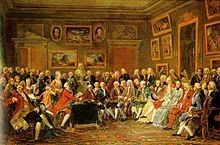
Salon
-- the term connotes the apotheosis of aesthetic, intellectual,
political and social gatherings conducted by aristocracies during
post-renaissance Europe. Originally an Italian invention in
the 16th century, the Salon flourished in France in the 17th
and 18th centuries beginning with Louis XIV and playwrights
such as Moliere, Racine and Corneille. The London coffee houses
of the 18th century added an intellectual middle class dimension
with artists such as Samuel Johnson, John Dryden, Joshua Reynolds,
and Addison and Steele. Still, by the 20th century the institution
always had an association with European culture. The only American
name to appear in Salon scrolls -- Gertrude Stein -- embraced
the fashionable exclusivity of the tradition but conducted her
sessions at 27 Rue de Fleurus in Paris.
Although
the term has not been associated with New York culture, the
city’s aesthetic ambiance presently includes Salon-like
convocations where American achievements in the arts are disseminated
and shared. In music, the contribution of American creators
to Jazz and Pop Standards is legendary and New York is the present-day
Paris of these arts which enjoy world-wide popularity. Hence,
it stands to reason that there exist gatherings in Gotham where
sophisticated and knowledgeable performances and discussions
of these arts occur. I attended one conducted in a democratic,
egalitarian climate while embracing all of the elements of the
old European ‘exclusive’ aesthetic tradition where
the term ‘Salon’ is certainly suitable.
The
salonniere of the New York Singing Salon is actress/author Barbara
Feldon and the bi-weekly assemblages are held in her stylish,
east side town house that features a gracious living area hosting
a sumptuous Steinway grand. On Salon evenings several musical
lions stroll in cheerfully greeting each other as they comfortably
nestle around a decorative coffee table offering healthy snacks
and beverages. Conversations referencing the latest Trump disaster,
New York Times editorial, recent cabaret opening, or
Giants football score quickly emanate as the folk warmly exchange
feelings and opinions.
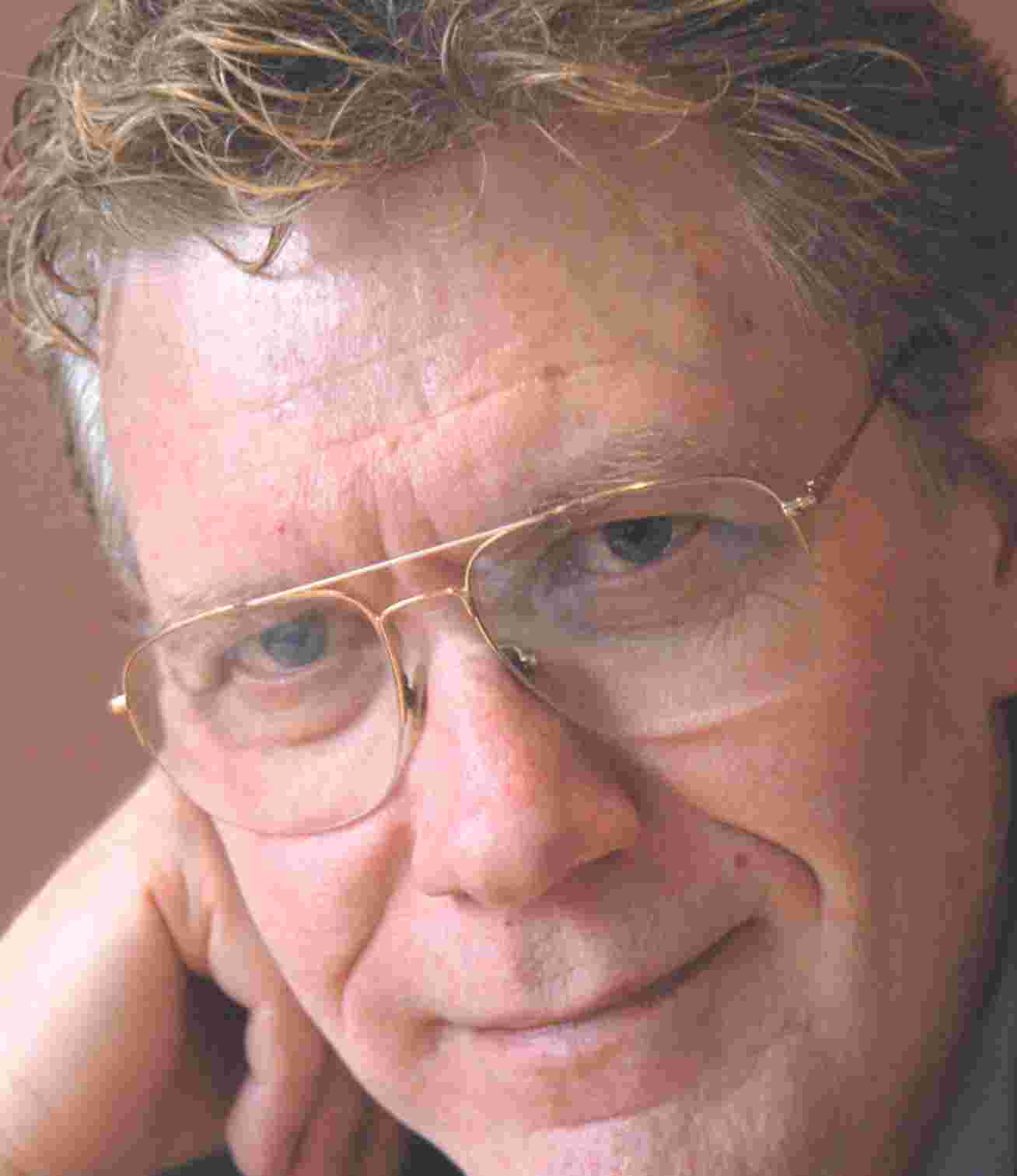 After
awhile New York native and composer/pianist superieure
Art Weiss ambles over to the Steinway and subtly lays down captivating
changes that segue into lilting standards. Trained at NY’s
prestigious Manhattan School of Music, Art has worked as conductor/accompanist
for legions of notable cabaret performers (Julie Budd, Marilyn
Maye, Cloris Leachman), served as entertainment director of
New York’s Playboy Club, and composed tons of acoustic/electronic
themes for the city’s galleries. Art’s effortlessness
in instantly transposing keys and stylings for singers is astounding
and the comfort he renders them is evident in their smiles and
inspired performances.
After
awhile New York native and composer/pianist superieure
Art Weiss ambles over to the Steinway and subtly lays down captivating
changes that segue into lilting standards. Trained at NY’s
prestigious Manhattan School of Music, Art has worked as conductor/accompanist
for legions of notable cabaret performers (Julie Budd, Marilyn
Maye, Cloris Leachman), served as entertainment director of
New York’s Playboy Club, and composed tons of acoustic/electronic
themes for the city’s galleries. Art’s effortlessness
in instantly transposing keys and stylings for singers is astounding
and the comfort he renders them is evident in their smiles and
inspired performances.
Up
next to perform might be Broadway veteran Jeanne Lehman. Jeanne
has one of those 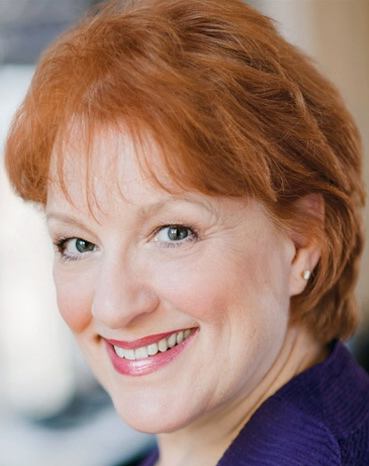 miraculous
soprano show voices that can cause a casting director to stop
her after a brief four bar auditioning phrase and shout “you’re
hired.” Indeed, such immediate reaction has no doubt occurred
in a career that has included roles in Hello Dolly, Beauty
and the Beast, My Fair Lady, The Sound of Music, and countless
other hits. Her film and TV career includes featured appearances
in everything from soap operas (All my Children) to
sitcoms (Kate and Allie) and her numerous recordings
(Noel Coward, Skitch Henderson) are hallmarks. She has functioned
as vocal instructor for companies world-wide (Hyundai Theater
Company, Seoul Korea -- Playwrights Horizons Theater School
NYU). Jeanne is a musical aristocrat and when you watch and
hear her sing, the experience is truly transforming.
miraculous
soprano show voices that can cause a casting director to stop
her after a brief four bar auditioning phrase and shout “you’re
hired.” Indeed, such immediate reaction has no doubt occurred
in a career that has included roles in Hello Dolly, Beauty
and the Beast, My Fair Lady, The Sound of Music, and countless
other hits. Her film and TV career includes featured appearances
in everything from soap operas (All my Children) to
sitcoms (Kate and Allie) and her numerous recordings
(Noel Coward, Skitch Henderson) are hallmarks. She has functioned
as vocal instructor for companies world-wide (Hyundai Theater
Company, Seoul Korea -- Playwrights Horizons Theater School
NYU). Jeanne is a musical aristocrat and when you watch and
hear her sing, the experience is truly transforming.
Singer/actor/comic/producer/screenwriter
Buddy Mantia is a show business anomaly. His many creative identities
epitomize the pedigree of New York show people. Shortly after
leaving his home in Dayton, Ohio and possessed of a rich tenor
voice, he was headlining in Las Vegas with Jackie Vernon and
soon after utilized his musicality as a member of a successful
comedy trio -- The Untouchables. The group was in demand on
all major variety and TV talk shows (Jack Paar, Johnny  Carson,
Merv Griffin) and headlined in clubs and casinos nationwide.
His comedy acting and writing led to his creating notable TV
and film scripts and by extension producing (a recent project
is The Last Request starring Danny Aiello). His redoubtable
singing was also featured in the Broadway show Three from
Brooklyn . . . Multi-talented doesn’t begin to describe
Buddy Mantia. At the salon when Buddy sings evocations drift
from Puccini opera to Cole Porter love songs -- a remarkable
repertorial canvas.
Carson,
Merv Griffin) and headlined in clubs and casinos nationwide.
His comedy acting and writing led to his creating notable TV
and film scripts and by extension producing (a recent project
is The Last Request starring Danny Aiello). His redoubtable
singing was also featured in the Broadway show Three from
Brooklyn . . . Multi-talented doesn’t begin to describe
Buddy Mantia. At the salon when Buddy sings evocations drift
from Puccini opera to Cole Porter love songs -- a remarkable
repertorial canvas.
During
intimate dining and drinking respites from the singing, a fun-filled
Q and A occurs where the esoterica associated with this or that
song, composer, lyricist, arranger is shared. Despite the veritable
Ph.D musical knowledge everyone has, they’re all delighted
to discover that such and such a tune was actually composed
by so and so when they always thought it was written by X. Anyone
listening to this banter can garner a semester’s worth
of pop music education in just one evening at the Salon.
Sara
Krieger is no less than a renaissance woman in this pantheon
of singing dignitaries. Her early jazz and pop success (Blue
Note Clubs, Carnegie Hall) catapulted her to prominence with
an illustrious vocalese group dubbed The New York Voices. 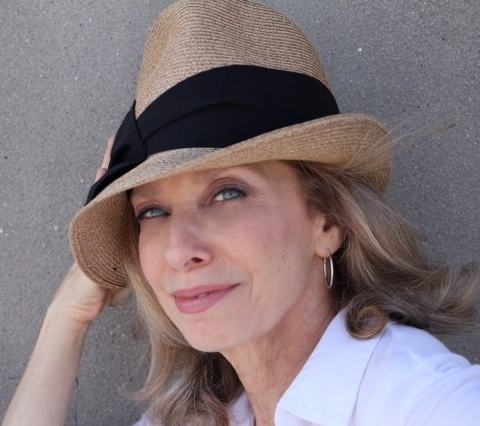 For
the uninitiated, vocalese is a penultimate test of singing virtuosity
(i.e. try sustaining a B flat when the vocalist to your left
is singing a B natural and the one to your right a C natural).
Sara’s prescience has led to a career in voiceovers (Citibank,
Estée Lauder, Bloomberg Radio) -- a conspicuously American
media invention that sports very few eminences. And for the
last 13 years of the David Letterman show she served as a ‘skit
voice’ during the monologues. Because of her astonishing
ear, breathtaking voice, and trailblazing phrasing when Sara
sashays up to the piano to sing a love song, she always ensnares
our souls.
For
the uninitiated, vocalese is a penultimate test of singing virtuosity
(i.e. try sustaining a B flat when the vocalist to your left
is singing a B natural and the one to your right a C natural).
Sara’s prescience has led to a career in voiceovers (Citibank,
Estée Lauder, Bloomberg Radio) -- a conspicuously American
media invention that sports very few eminences. And for the
last 13 years of the David Letterman show she served as a ‘skit
voice’ during the monologues. Because of her astonishing
ear, breathtaking voice, and trailblazing phrasing when Sara
sashays up to the piano to sing a love song, she always ensnares
our souls.
What
is frequently amusing and always instructional when a singer
steps up to the plate with a chart for Art is the playful key
selection process. On one occasion with Sara, after hearing
the title of her tune for the first time and the key she wanted,
he instantaneously arpeggioed into A flat major. Seeing a frown
on her face, he switched to Bb. Still the frown, so now B major.
(If you dare, try your hand at sight or auditory transposition
into this difficult key while instantly servicing the vocalist
with languorous changes). This time she simply squirmed a bit
on her stool. Again an instant arpeggio from Art; she nodded
and smiled. “Where are we now,” she queried. “C”
he replied and they both chuckled at discovering that the most
comfortable key was an elementary one.
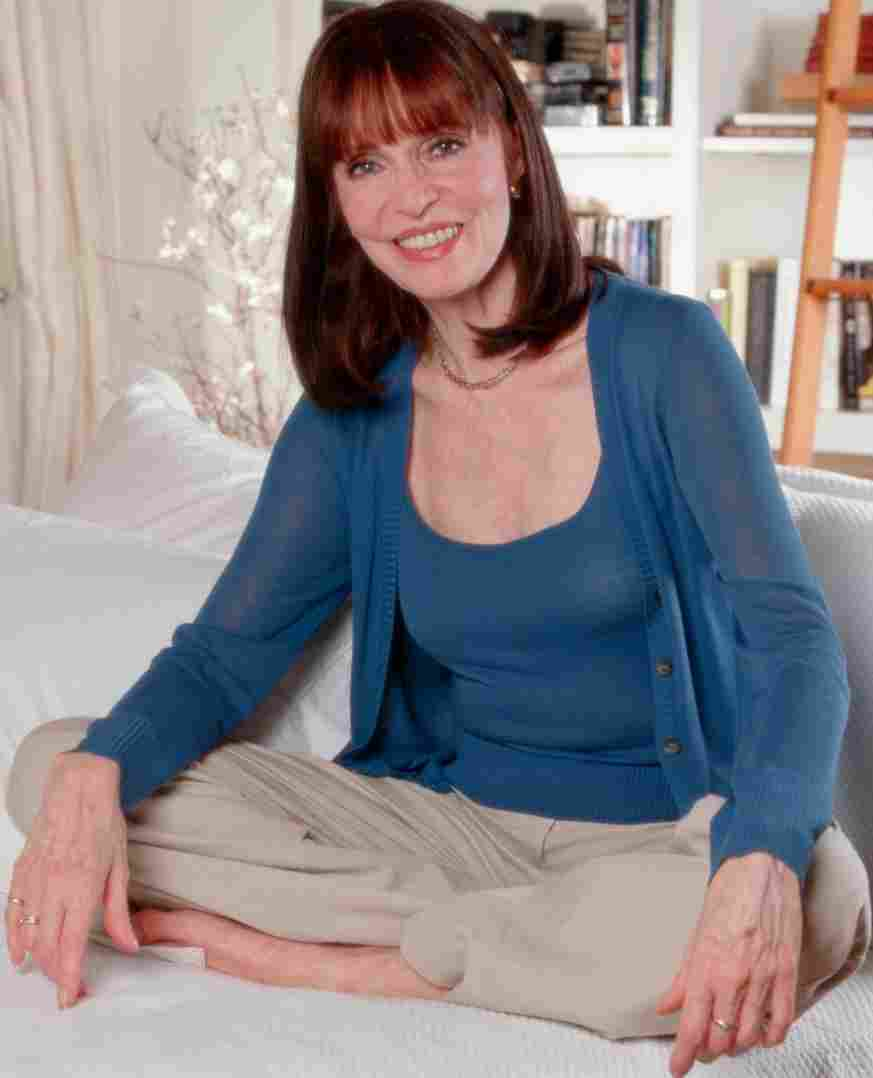 Upon
serving a cozy repast to her colleagues, Barbara Feldon will
move to the Steinway and quietly motion to Art. She then launches
herself into a delicious little ditty that is often far from
mainstream Tin Pan Alley (Tell me on a Sunday, Please).
It can be eerie or enchanting, but always charming. Most often
she will follow with a reading from a poem or a scene from a
script. This is always extra special. Barbara, long an acclaimed
veteran of major films (Michael Richie’s Smile),
Broadway shows (Circle in the Square production of Past Tense)
and TV ( her co-starring as agent 99 in Get Smart earned
her huge celebrity) has served on the board of the Poetry Society
of America and written a heralded book of essays Living
Alone -- and Loving It. At the Salon, her dramatic readings
are magnificent.
Upon
serving a cozy repast to her colleagues, Barbara Feldon will
move to the Steinway and quietly motion to Art. She then launches
herself into a delicious little ditty that is often far from
mainstream Tin Pan Alley (Tell me on a Sunday, Please).
It can be eerie or enchanting, but always charming. Most often
she will follow with a reading from a poem or a scene from a
script. This is always extra special. Barbara, long an acclaimed
veteran of major films (Michael Richie’s Smile),
Broadway shows (Circle in the Square production of Past Tense)
and TV ( her co-starring as agent 99 in Get Smart earned
her huge celebrity) has served on the board of the Poetry Society
of America and written a heralded book of essays Living
Alone -- and Loving It. At the Salon, her dramatic readings
are magnificent.
All
of the artists possess remarkable self-absorption (focus and
concentration). Despite the informal, cozy setting they perform
as if they were on stage at Carnegie Hall or headlining in a
leading Night Club -- their professionalism is omnipresent.
And as an audience I am thrilled to have a seat 5th row Center.
The
New York Singing Salon is most compelling because it reflects
the cultural achievement possibilities available in a free society.
No one knows what talent lay in the non-aristocratic populations
of the France and Italy of Royal Houses. Egalitarianism is vital
if a nation’s full cultural resources are to be tapped.
Consider that jazz -- an original American art form -- might
never have materialized had not ex-slaves been able to obtain
free expression and upward mobility.